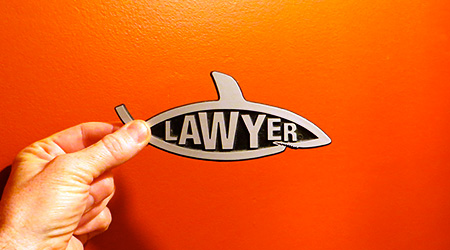How To Do Debt Consolidation Without A Lawyer

There are a number of different options available to consumers to consolidate debt without the assistance of a lawyer. Normally a lawyer should only be consulted when all options are exhausted because their services are often expensive and are best used when filing for bankruptcy or getting a divorce. Debt consolidation is simple enough for most consumers to take action on their own as long as they know the pluses and minuses of each option.
Credit Card Balance Transfer
The average consumer maintains between six and eight credit cards and an average total balance of $9,000. For consumers which are completely maxed out on each credit card, using balance transfers won't be an option. However, if you have one high limit credit card with a low balance you can often use balance transfer checks or call customer service to conduct multiple balance transfers. This comes in handy by taking four or five high-interest rate credit card balances and combining them into a single monthly payment at 0% interest for 12 to 18 months. Now, when your monthly credit card payment is made the entire amount is applied directly to principal. This allows you to pay off excessive debt quickly instead of treading water by making interest payments. It is important however to avoid using the remaining credit cards and adding new debt.
Home Equity Line of Credit
Home owners have a much better option available for debt consolidation assuming they have equity built up in their home. Home equity lines of credit and home equity loans are perfect for debt consolidation because they have the same net affect of credit card balance transfers but the associated mortgage interest is tax-deductible. A major drawback to this option however, is a home equity line of credit is a secured loan using your residence as collateral. This means if you should default on either your mortgage or the HELOC a lien could be placed against the property and foreclosed upon. A HELOC is essentially a second mortgage which is just as important to pay as the primary loan.
Debt Consolidation Company
If you're still unsure of how to conduct a debt consolidation with out a lawyer there is still an option to seek professional assistance. Many nationally recognized nonprofit debt consolidation companies offer services to help consumers tackle excessive debt while repairing their credit. These organizations have established business relationships with many credit card companies and financial institutions and are able to negotiate terms beneficial to both parties. It is often possible to have interest rates lowered, penalties fees and interest waived and settlements negotiated to pay off existing balances. Keep in mind that there is normally a processing fee as part of the monthly payment and be sure to research the debt consolidation company before handing them your money.
Financial Institution Loan
A final option for consolidating debt without a lawyer is to go to your personal financial institution such as a bank or credit union for a loan. This type of debt consolidation however is much less likely to happen due to more stringent loan requirements. After the banking crisis, many lenders clamped down on risky loans and only those consumers with near-perfect credit are likely to obtain a personal loan to use for debt consolidation. However, it doesn't hurt to ask and depending on your banking relationship and personal assets you may very well qualify for this type of loan. As with all the options, once you consolidate your debts avoid using your credit cards until you're debt free and your credit has been repaired.







